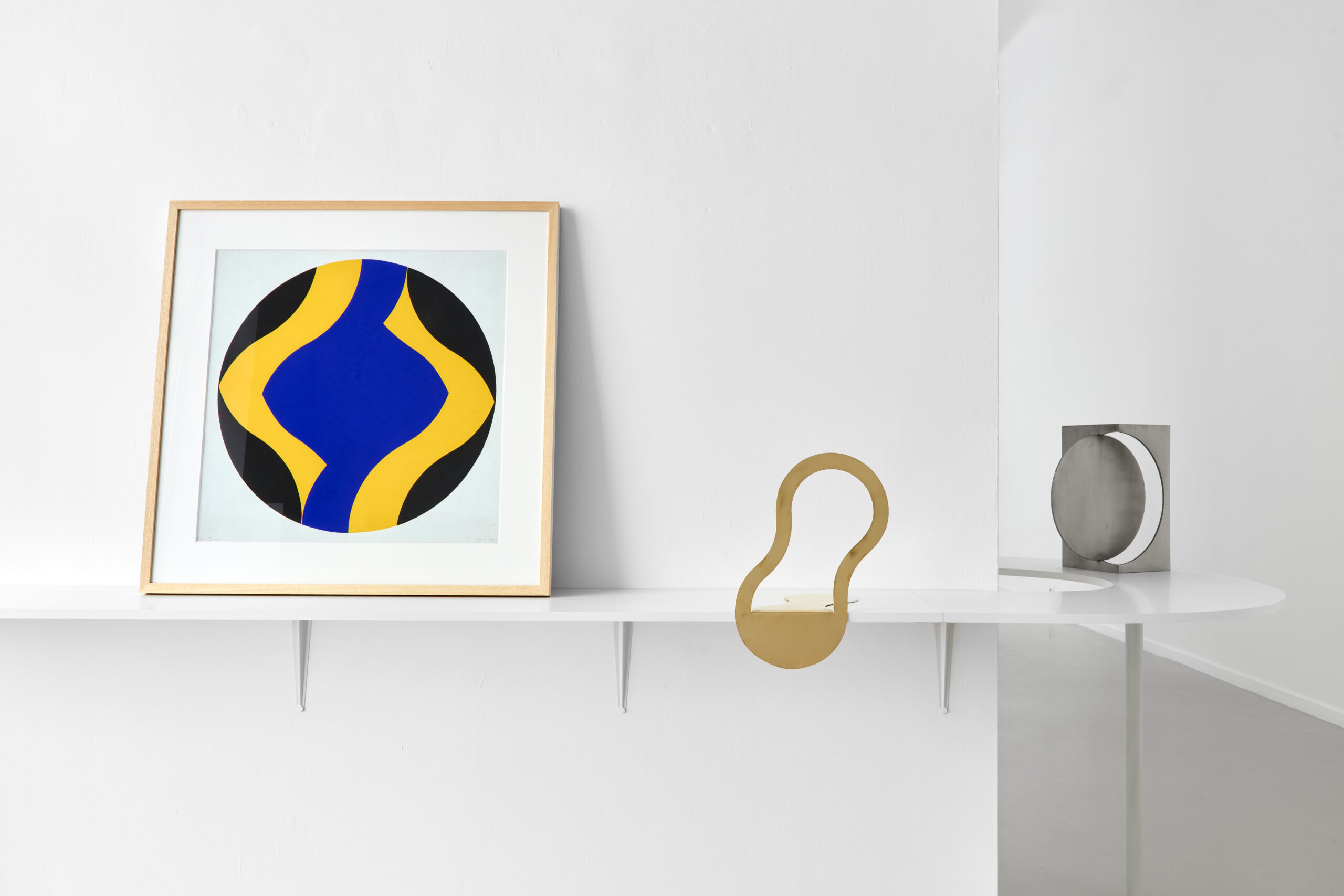
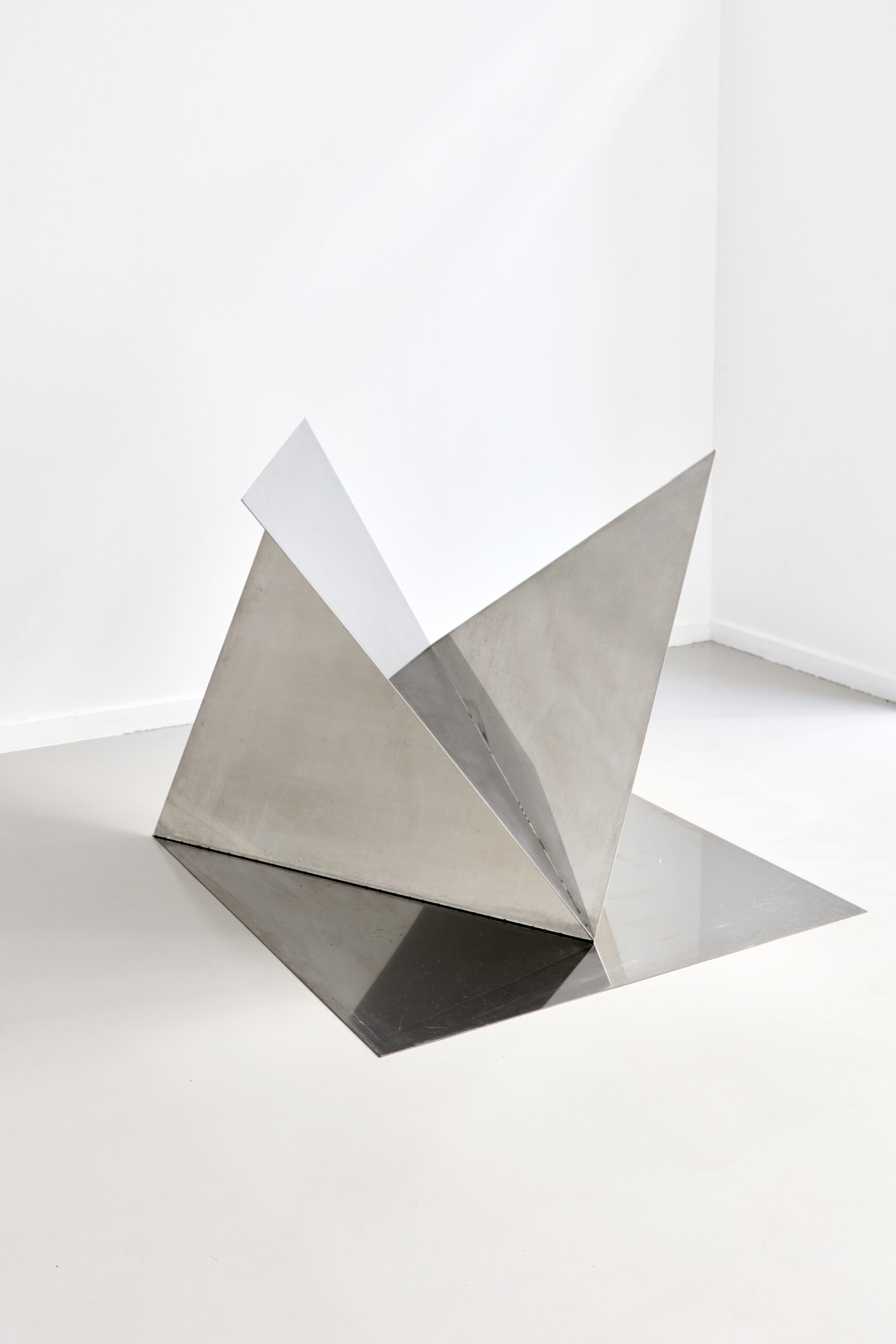
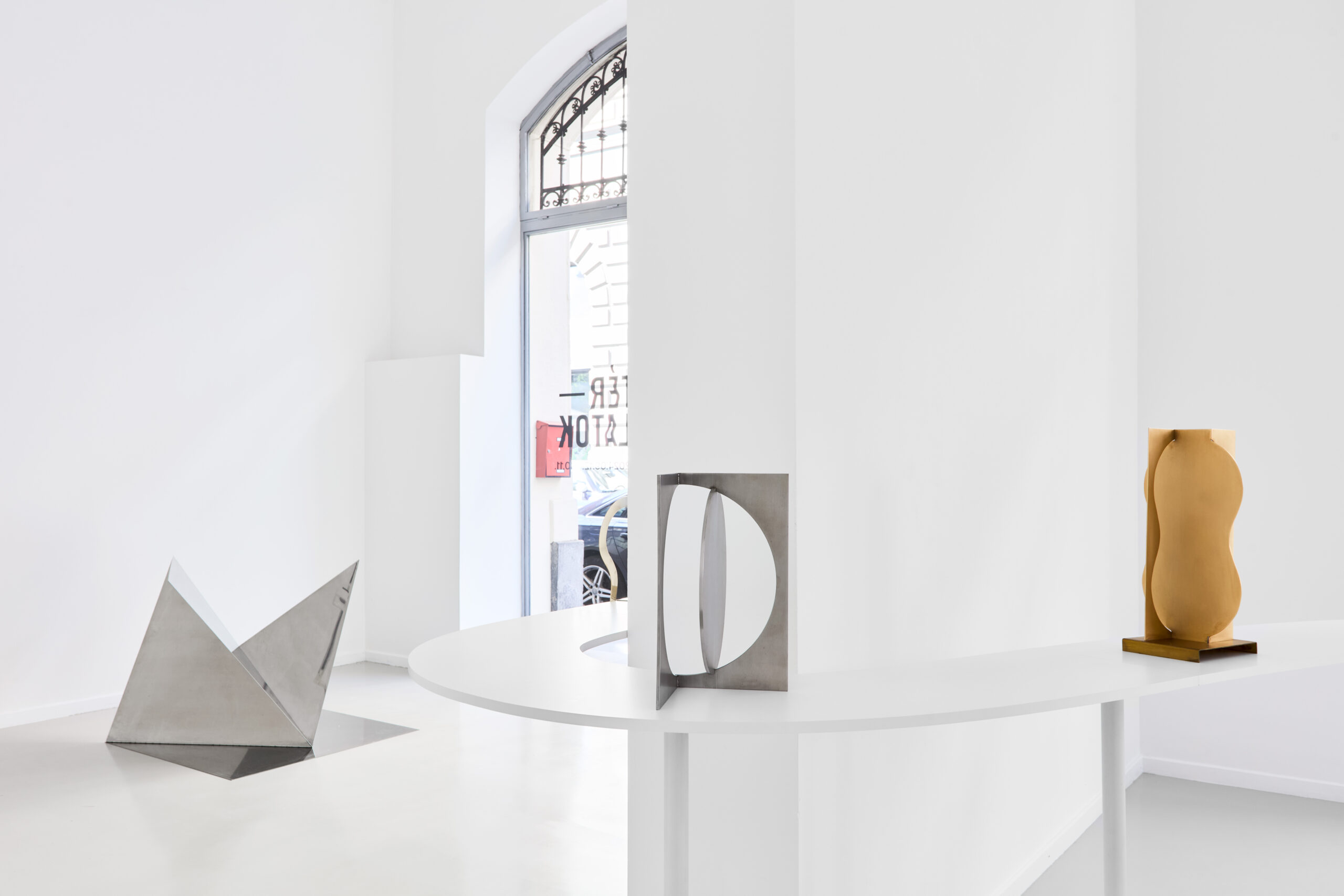
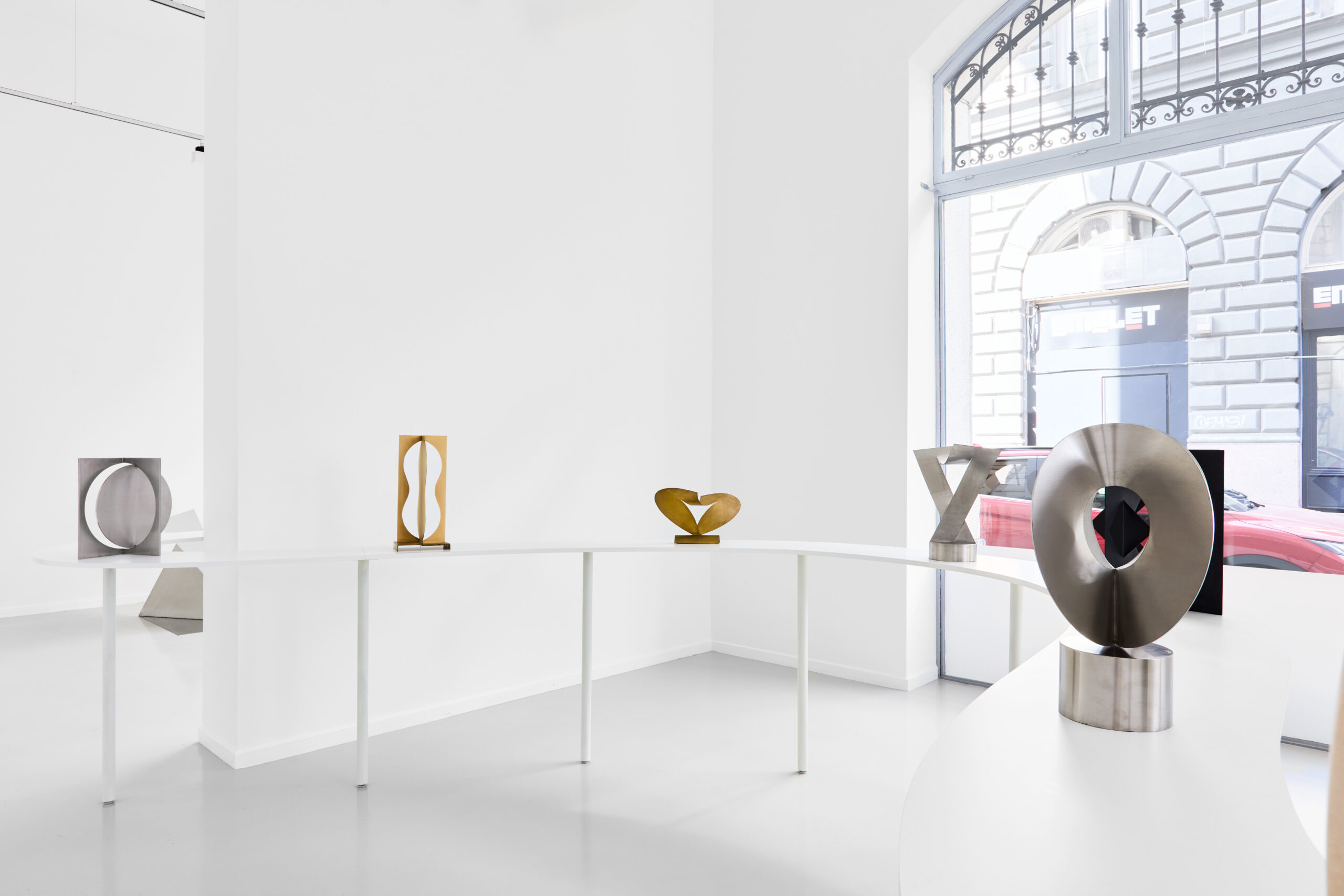
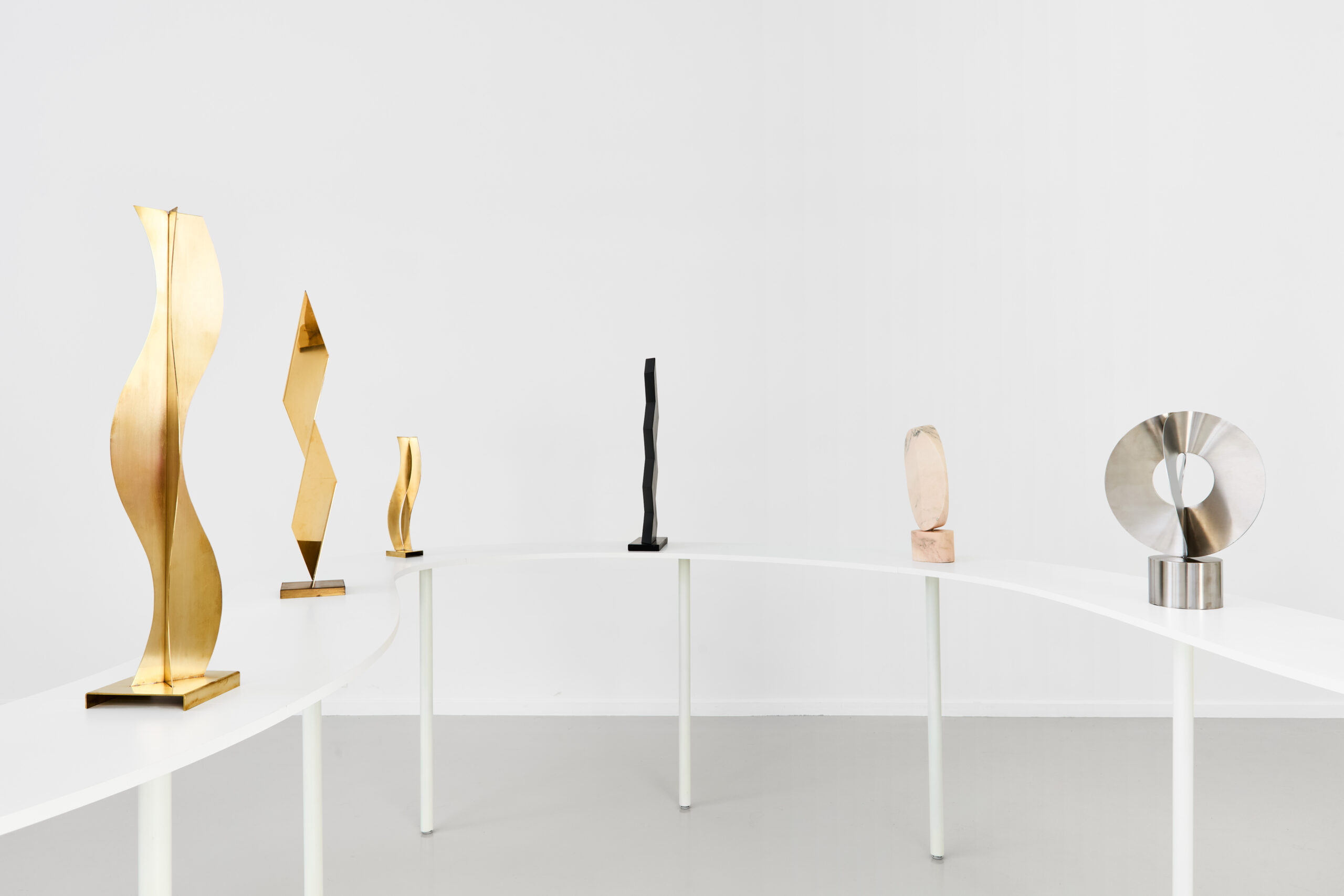
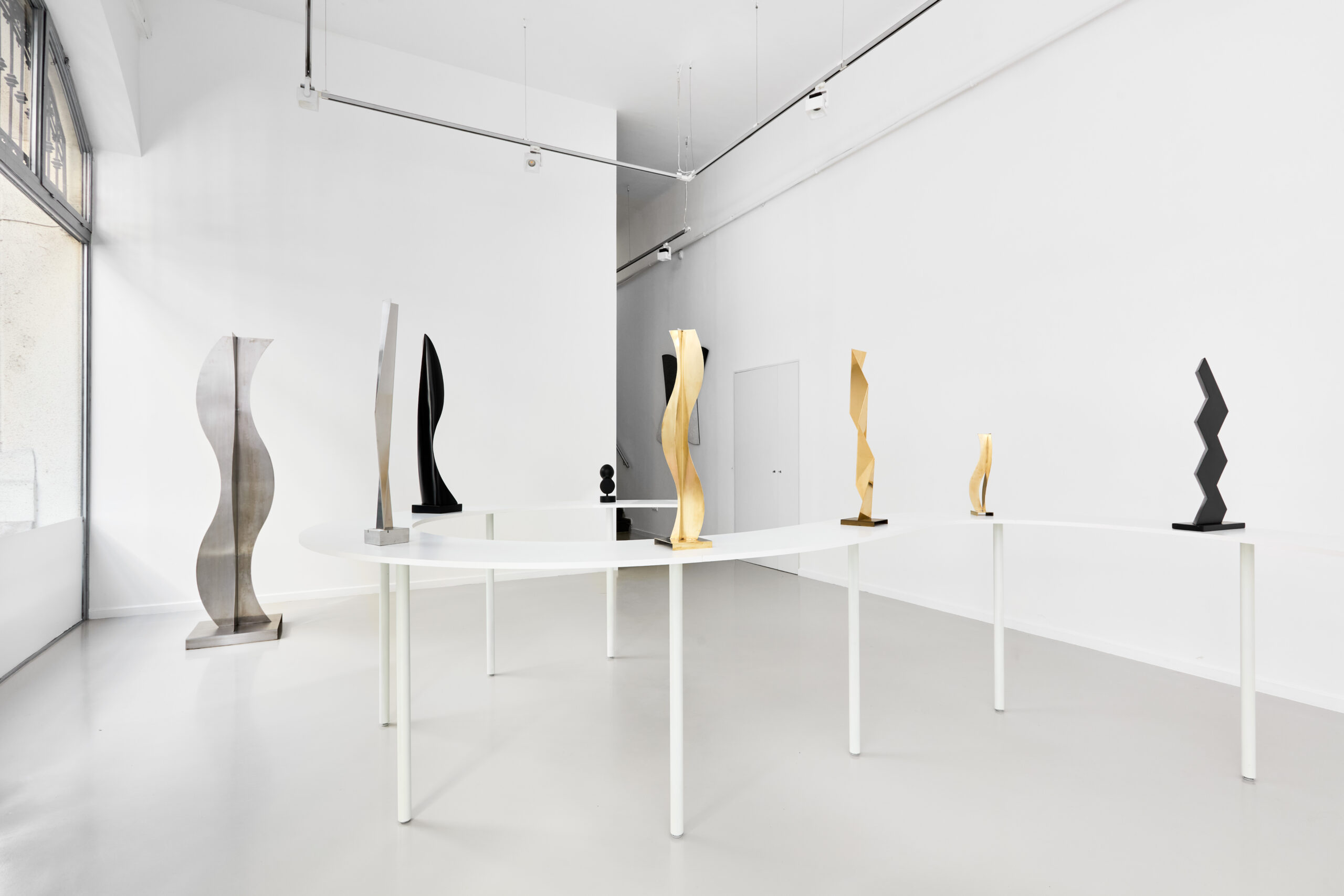

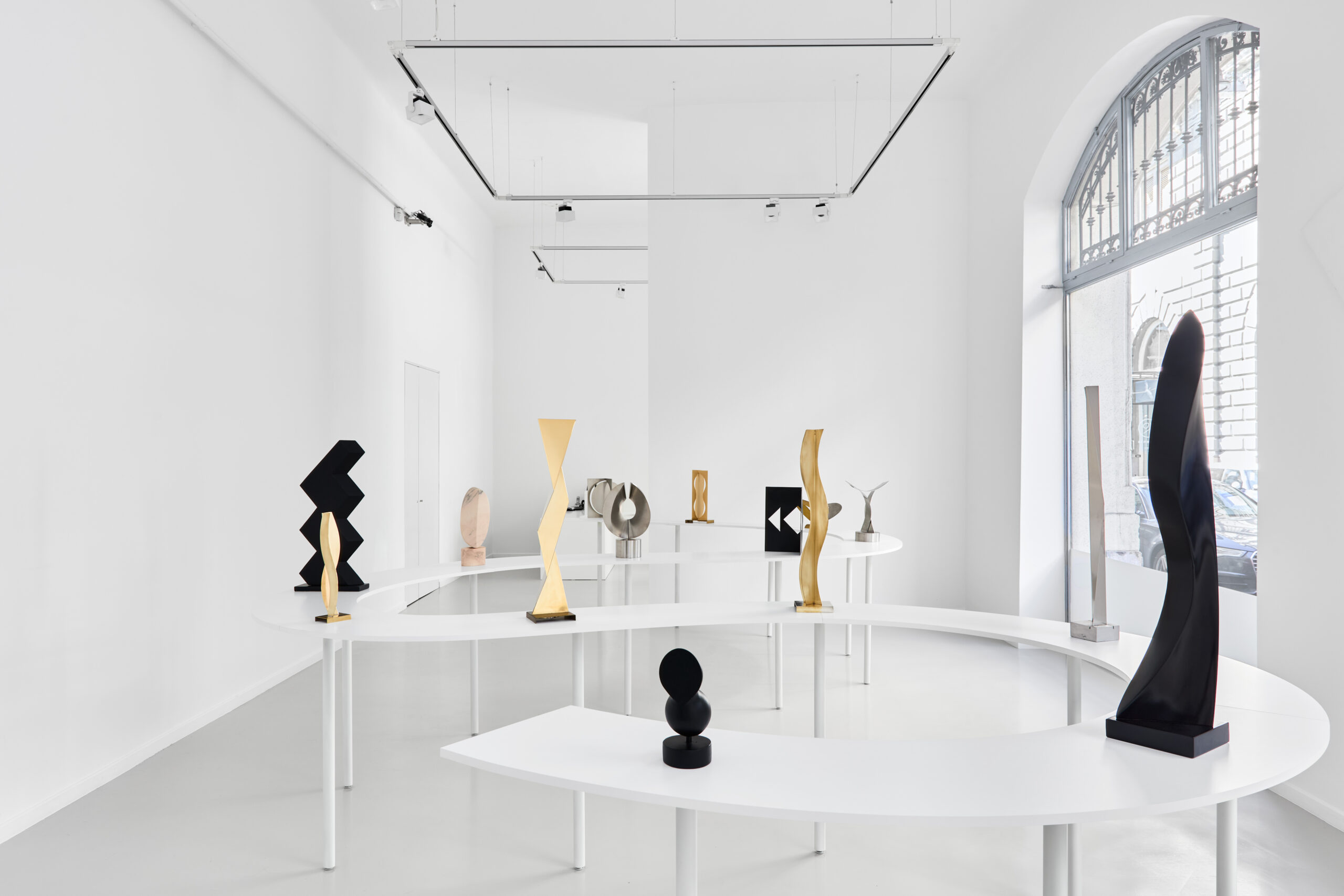
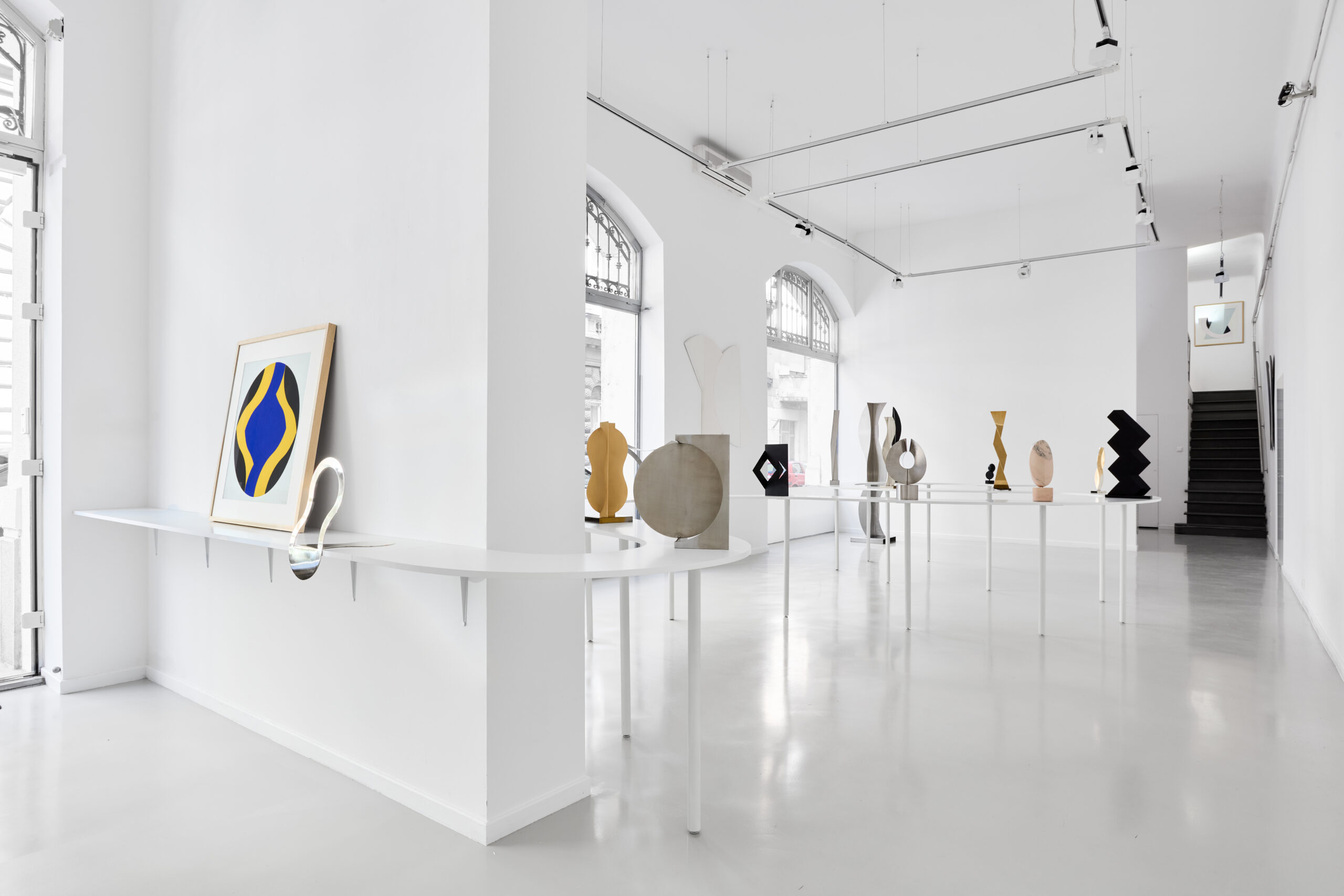
Space Movements
The Deák Erika Gallery is delighted to present its season-opening exhibition, which focuses on the sculptural work of János Fajó. The works will be displayed on a special, walk-around displaytable designed by the exhibition's co-curator Zsófia F. Szántay. Thus the works will have a particular dialogue not only with each other but with the gallery space itself. Fajó's objects will be moving in and around within the space as if they were components of a precisely composed sculptural pathway while inviting the visitor to take a slow walk.
"Form is an expression of rationality and the power of the soul," says Fajó. His sculptures are two-dimensional forms bent into space, suggesting a constant, dynamic movement, while also reflecting on architecture and the science of mathematics. His basic principle is a play of combinations of simple planar forms, bending, twisting and what is created becomes light and soft, yet powerful and energetic. Fajó knew well the materials he was using, knew what they could do, and followed their lines, while always seeking their limits. Marble remains round and feminine, steel is sharp but bends in his hands, while wood can do it all, becoming firm and hard while remaining lush and sensual.
The sculptures are accompanied by a quasi-triptych painting on the walls. These paintings, like the sculptures, are dominated by simple variations of plane forms. These two-dimensional works also explore one of the fundamental issues of Fajó's oeuvre, the possibilities of infinite combinations of forms and their spatial relationships, now detached from the basic rectangular plane of the canvas. The representation of geometric shapes bent into space, the colorful play of circle and square, paints a picture of a man constantly exploring, eternally curious, tirelessly and joyfully searching for the boundaries between plane and space. János Fajó was just like that, he was working continually on his sculptures in his studio even in the last stages of his life, almost always with a tool in his hand, and then, as before, he was able to create the simplest, most precise statements with his work.
János Fajó (1937-2018) is one of the most important and inspirational Hungarian artists. He was a founding member of the Pesti Workshop in 1974, one of the founders of the metal sculpture workshop in Győr in 1976, directed the Józsefvárosi Gallery from 1976, and also taught at the College of Applied Arts, and was friends with Max Bill and Vasarely, among others. His emblematic works have been and are still exhibited in Hungary and around the world.
Zsófia F. Szántay, architect, and designer, holds a DLA from the Doctoral School of Architecture of the BME, co-founder of NAUTES Architecture Studio. She has been researching the theme of utopia and its philosophical, linguistic, and architectural aspects for a decade and was a research fellow at the Fajó Foundation in 2021. In 2023, she had a solo exhibition in the Budapest Gallery. This is her first curatorial work.
Opening: 2024. September 12, Thursday 18-20 h
On view: 2024. September 13 - October 11.
Curators: Zsófia F. Szántay and Erika Deák